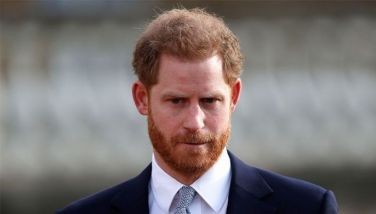US senators take up immigration in first hearing
WASHINGTON (AP) — Senators are weighing one of President Barack Obama's top second-term priorities at the first Senate hearing on a comprehensive immigration overhaul. Many stubborn fault lines are sure to emerge.Wednesday's Senate Judiciary Committee hearing, which comes amid a concerted focus on immigration reform from the White House to Capitol Hill, was to feature testimony from the Homeland Security secretary, Janet Napolitano, and — in an unusual move for Congress — an illegal immigrant, Jose Antonio Vargas, a former journalist who founded the group Define American, which campaigns for immigration reform.
The former head of America Online, Steve Case, also was on the witness list, along with Chris Crane, president of the immigration and customs' workers union, which has opposed Obama's immigration policies.
The hearing comes a day after Obama in his State of the Union address renewed his call for sweeping immigration legislation that includes a pathway to citizenship for the nation's estimated 11 million illegal immigrants. Meanwhile a bipartisan group of eight senators has been meeting to develop a bill by next month that accomplishes eventual citizenship for illegal immigrants while also containing enough border security and enforcement measures to gain conservative support.
The bipartisan Senate negotiators, including Democrat Chuck Schumer of New York, Republican Marco Rubio of Florida, and John McCain of Arizona, are operating separately from the Senate Judiciary Committee, but the committee is expected to vote on any legislation they produce. In his opening statement for Wednesday's hearing, Judiciary Chairman Patrick Leahy planned to emphasize the importance of a straightforward and attainable path to citizenship for illegal immigrants, including the youths known as "dreamers" brought here by their parents.
"Comprehensive immigration reform must include a fair and straightforward path to citizenship for those 'dreamers' and families who have made the United States their home — the estimated 11 million undocumented people in the United States," Leahy's statement said. "I am troubled by any proposal that contains false promises in which citizenship is always over the next mountain. I want the pathway to be clear and the goal of citizenship attainable."
But with conservative lawmakers heavily represented on the panel, the hearing seemed likely to put into harsh perspective the difficulties of getting comprehensive legislation through Congress despite the commitment from Obama and many Republican leaders. A number of these leaders have come to view immigration legislation as a political imperative after November's election, when Latino voters flocked to Obama and helped ensure his re-election. But that view has not been embraced by all rank-and-file Republicans.
"The biggest obstacle we face to reform is this nation's failure to establish lawfulness in the system," a top committee Republican, Sen. Jeff Sessions of Alabama, said after Obama's State of the Union speech Tuesday. "The president's plan meets the desire of businesses for low-wage foreign workers while doing nothing to protect struggling American workers."
In addition to border security and a pathway to citizenship for illegal immigrants already in the country, any comprehensive immigration legislation likely would address the issues of employer verification and temporary workers, and make changes to the legal immigration system. A major difference between Obama's proposals and the blueprint embraced by the bipartisan Senate negotiators is that the senators are making a pathway to citizenship conditional on border security being accomplished first — something Republicans demand — while Obama's plan contains no such linkage.
Vargas acknowledged his illegal status in a high-profile piece in The New York Times Magazine in June 2011 but thus far has avoided deportation. He was part of a Washington Post team that won a Pulitzer Prize in 2008 for coverage of the Virginia Tech massacre. He wrote in his Times essay that his mother sent him from the Philippines to live with grandparents in California in 1993 when he was 12. He wrote that he didn't find out he was in the country illegally until he applied for a driver's permit with forged documents.
- Latest
- Trending



























